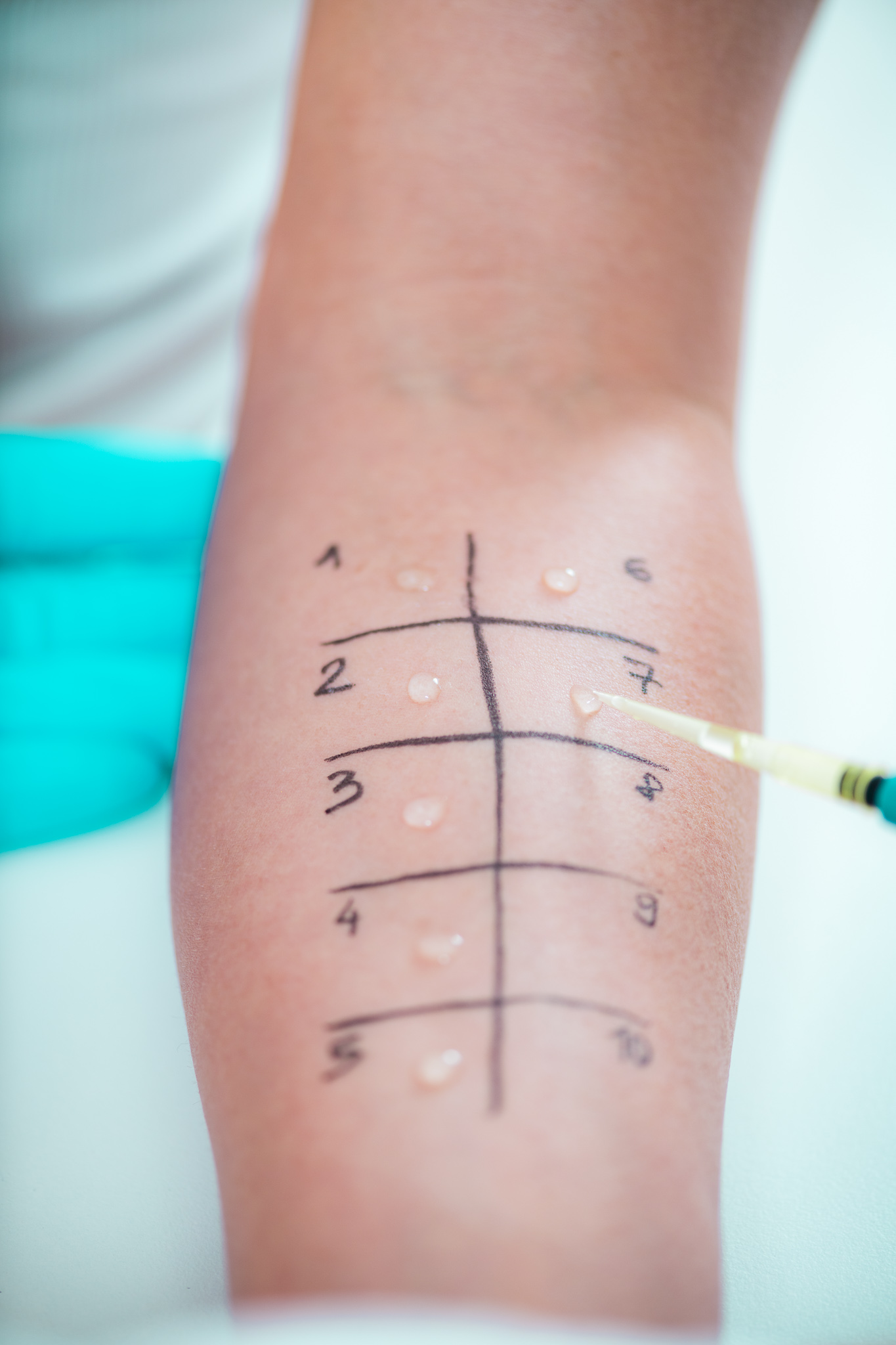Allergology

WHAT IS ALLERGOLOGY?
Allergology is the medical specialty that studies allergies and how they present themselves. They may be related to substances that we breathe, ingest, or come in contact with.
Family history is very important, and if we have an allergic parent, the chances of having an allergy are very high.
The most common allergies are manifested as rhinitis, asthma, hives, dermatitis or atopic eczema, allergic contact dermatitis, food allergies and anaphylaxis.
Thanks to environmental control measures and vaccines or immunotherapy, the patient can overcome most of the restrictions that predispose to an allergy.
At Clínica Eupnea, we work with the specialty of Allergology together with other specialties of the respiratory system with the aim of providing the correct diagnosis. If you are looking for an allergist in Palamós, we are your center.

DIAGNOSTIC STUDIES AT CLINIC EUPNEA PALAMÓS
- Cutaneous test or prick test : For environmental or respiratory allergens . These are tests that try to reproduce an allergic reaction on the skin by testing different substances and comparing them with a standard sample. In general, it is used to detect allergies to pollen, mold, animal skin, mites…
- Epicutaneous tests or path test : These are skin provocation tests with the aim of demonstrating allergic contact dermatitis. These tests cause an allergic reaction. To carry this out, dressings are placed with standardized amounts of allergens.
- Spirometry : Yes a test capable of measuring lung capacity. This is achieved through the amount of air the patient is able to exhale and inhale, and the speed at which they do so.
- Allergic nasal and conjunctival provocation : These are tests that are based on the application of an allergen on the conjunctival or nasal mucous membranes. This is done in order to cause a characteristic allergic reaction.
- Bronchodynamic tests : Better known as a test with bronchodilators. It consists in carrying out a spirometry after the administration of a bronchodilator.
- Measurement of nitric oxide : The exhaled nitric oxide (FENO) test is a test that measures the degree of inflammation of the airways. For this reason, it is a very common test for patients with allergic asthma.
What is an allergy and what are its symptoms?
- An allergy is an abnormal response of the immune system to a harmless substance. Symptoms may include itchy eyes, sneezing, nasal congestion, skin rashes, or difficulty breathing.
How can I know if I have any allergy?
- If you experience common allergy symptoms, it’s important to consult with an allergist who will perform allergy tests such as skin prick tests or blood tests to identify substances that may be affecting you.
What are the most common allergies?
- The most common allergies include pollen allergy, dust mite allergy, food allergy, pet allergy, and insect sting allergy.
How can I manage seasonal allergies?
- You can manage seasonal allergies by avoiding exposure to allergens like pollen, using air purifiers, keeping windows closed, and taking antihistamines or other prescribed medications.
What is anaphylaxis and how should it be treated?
- Anaphylaxis is a severe allergic reaction and can be life-threatening. If you experience symptoms like difficulty breathing, swelling of the lips or throat, hives, or dizziness after exposure to an allergen, seek immediate medical help.
How can I prevent allergic reactions in my environment?
- You can prevent allergic reactions at home by keeping it clean, using dust mite-proof covers, avoiding irritating chemical products, and keeping pets out of the bedroom.
What are the steps for an allergy test?
- During an allergy test, the allergist may perform skin prick tests or blood tests to identify substances that may cause allergies and help develop a treatment plan.